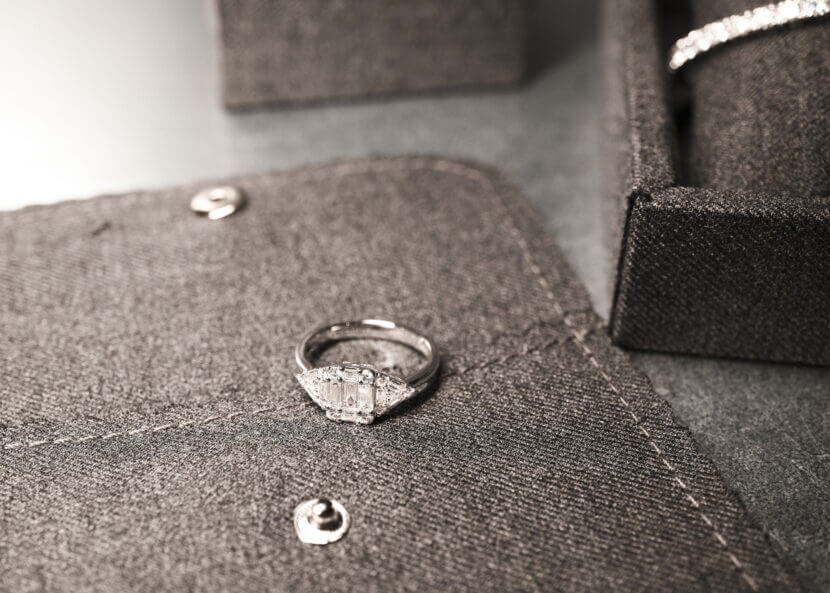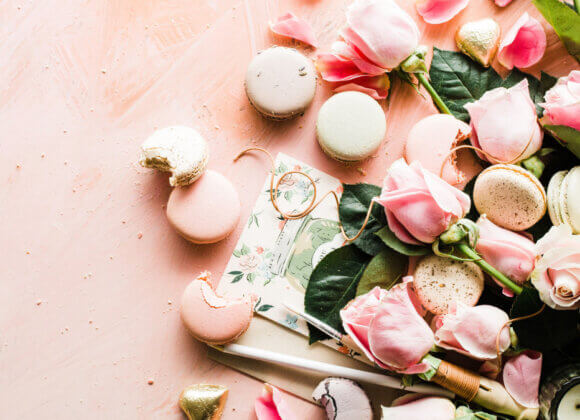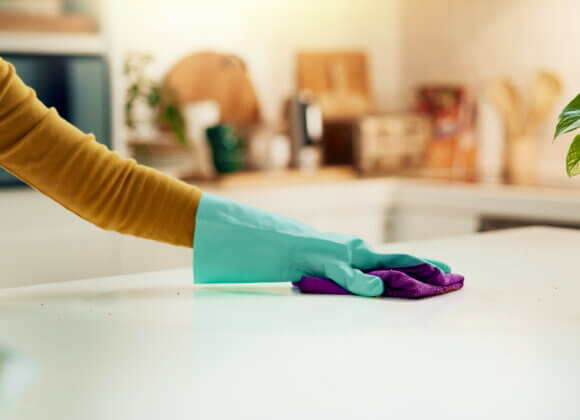They are often heirlooms of special and emotional significance. Or expensive treasures that you have been given as a gift for an occasion. Or “just” special pieces that you fell in love with from one second to the next. However, there are a few things to consider to ensure that your jewelry remains as beautiful and well cared for as it was at the beginning – especially the right storage. Oliver Heemeyer, jeweler in 1010 Vienna, explains what it takes to enjoy flawlessly beautiful rings, bracelets, watches and the like for years and decades to come. His tips.
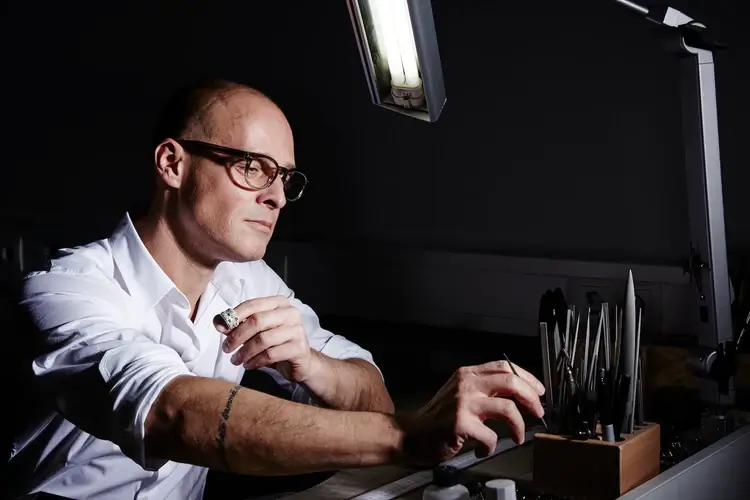
In the bedside cabinet, in the bathroom or in the safe – there are many ways to store jewelry. What does the professional advise?
My recommendation is to store jewelry in a dry place and at room temperature to protect it from oxidation and other damage that can be caused by various environmental stresses.a jewelry box or casket with a soft lining is ideal as it protects the jewelry from light and moisture.
This is especially true for the pieces of jewelry they wear regularly. However, if you own a lot of jewelry that is rarely worn or pieces that have a special value to you – whether monetary or emotional – it is advisable to store them in a safe.
It is also important to always store jewelry separately. This way you can ensure that no scratches occur and chains do not become knotted.
You will always receive a storage box with our jewelry, in which you can store your jewelry without any worries.
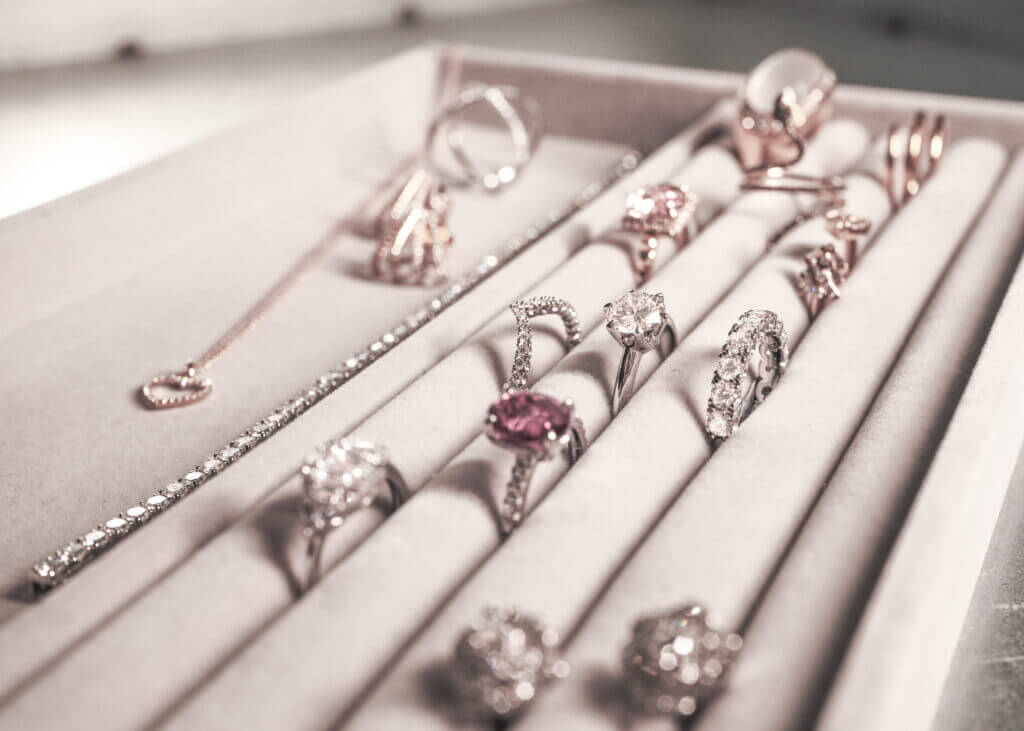
At “Free”, so on special Hangers or absolutely in one Casket?
It is better to store jewelry in a box to protect it from dust, moisture, sunlight and other environmental influences. Special hangers can be useful for certain pieces such as necklaces to avoid tangles, but here too it is important to protect the jewelry from moisture and sun.
Speaking of caskets: they are usually lined with velvet or silk. Which is better?
In my opinion, velvet is the better choice as it is softer. Silk is thinner in comparison and definitely needs additional padding.
As silk is not ideal for this purpose, you will hardly find any caskets that are lined with silk.
Alcantara is the best choice. This is a very fine microfiber fabric. This is ideal for this purpose.
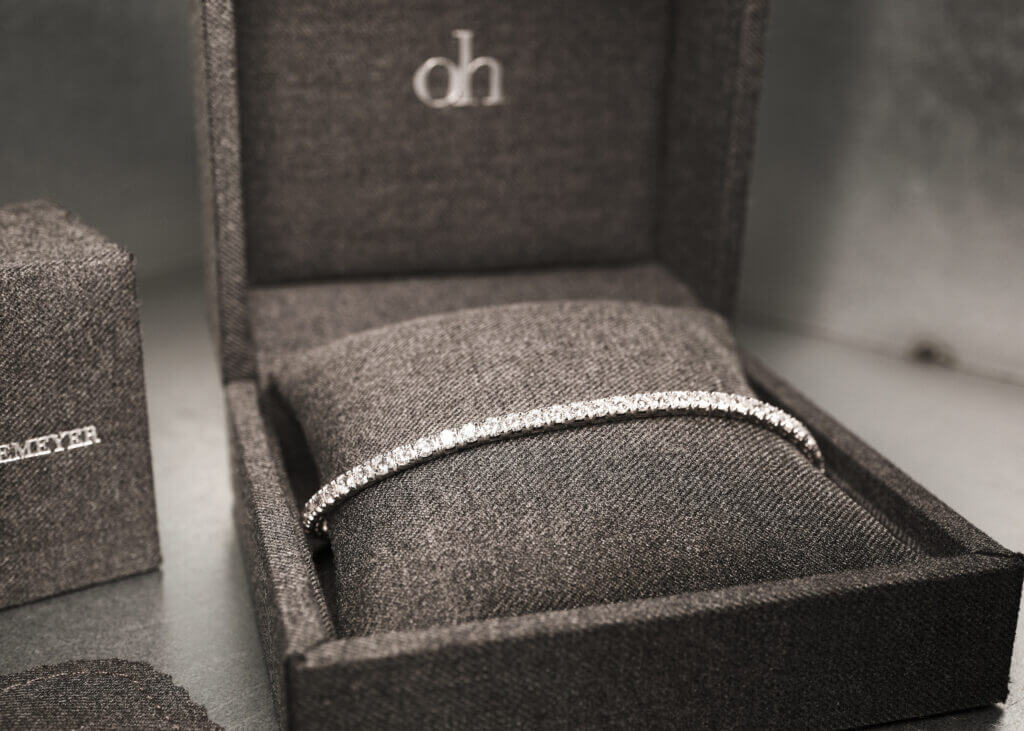
Are there different guidelines for silver, gold, diamonds, etc.?
Yes, they really do exist! For example, silver jewelry should be particularly well protected from humidity and polished regularly to prevent oxidation.
Chemicals, for example in cleaning agents, should generally be avoided as they can potentially damage your jewelry.
For jewelry with diamonds or other stones, it is important to avoid hard knocks, as the stones could come loose and be lost. Special care is also required with some gemstones. Rubies, sapphires and emeralds in particular should be handled with care. These stones are sensitive to sunlight and salt water. Unfortunately, they are not good companions for your next trip to the beach. Excessive heat should also be avoided, as the stones could crack.
What is an absolute no-go?
It is an absolute no-go to store jewelry together with other hard objects, as this can cause scratches and damage. You should also avoid using leather when storing your jewelry, even if it looks very elegant. The tanning agents it contains can discolor and damage your jewelry. This is especially true for silver jewelry.
Watches need to be serviced regularly – how often should jewelry be “serviced”?
The maintenance of jewelry depends on the type of jewelry and its use. We offer our customers the opportunity to bring their jewelry to us once a year. We clean, polish and check it to ensure that it is not only in perfect condition, but also looks like new again!
What are the most common types of damage that can occur to jewelry?
Frequent damage includes scratches, loose stones and bent or broken parts.
This can happen especially with frequent wear, no matter how well the jewelry is made. However, all these problems can usually be rectified quickly.
Which ones can you fix yourself and when should you definitely visit a jeweler?
It is advisable to visit a jeweler if you have major problems such as broken or loose stones, bent metals or complex repairs. A jeweler can properly assess the damage and perform professional repairs to ensure your jewelry remains in the best possible condition. If you carry out repairs yourself, there is a risk of making the damage worse. Therefore, please always consult a professional. That’s what we’re here for!
Photos: Oliver Heemeyer
Related posts:


